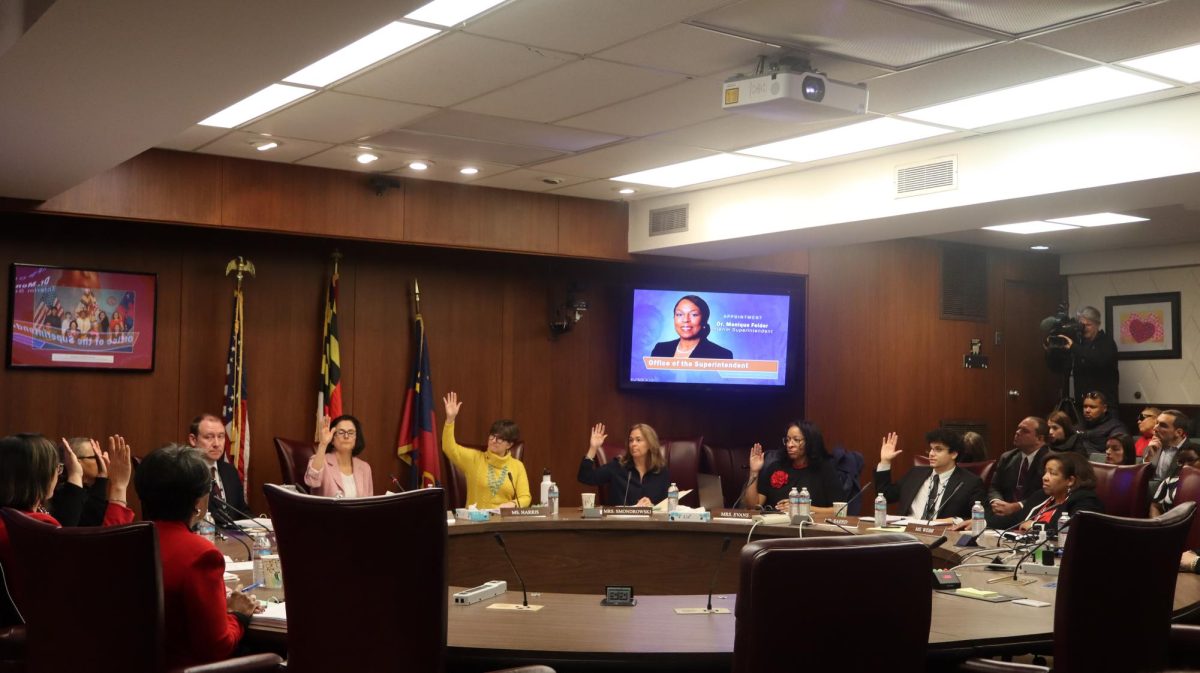Julie Yang, newly elected as the Montgomery County Public Schools (MCPS) Board of Education president, is starting her term with a focus on addressing pressing concerns that affect students, teachers, and the wider community. Drawing from her personal journey of overcoming challenges in her education and her professional expertise in educational governance, Yang plans to improve transparency by increasing access to data, enhance safety through modernized policies, and address facility concerns with targeted investments.
Yang’s commitment to education stems from a transformative experience in her childhood, where the encouragement of a dedicated teacher propelled her toward academic success despite systemic barriers. This foundational experience informs her policies for MCPS, emphasizing equitable opportunities for every child. “I grew up poor, many peers among me, especially girls, didn’t get to go to secondary schools or college,” she said. “I couldn’t count to 20 at 7 years old, but one teacher during my second grade, she didn’t give up on me. She changed my life’s trajectory. So I finished secondary school, right? I finished high school, and I went to college, and also went to graduate school. And so I think she really changed my life.”
Yang’s leadership emphasizes transparency and accountability, with a particular focus on engaging the community. Under her guidance, the Board plans to update the facility index, allowing parents and students to access real-time data about building conditions, such as air conditioning issues or repair needs. Additionally, the Board will expand its community outreach by holding budget information sessions in local neighborhoods and virtual meetings to ensure broader participation. “We want to be a front-facing Board of Education that directly engages with the community,” Yang said. “My goal this year is that the Board, as president of the Board, we are going to go out more into the communities.”
Among the pressing concerns Yang aims to address is the persistent issue of transportation delays. MCPS oversees 1,300 bus routes and 13,000 bus stops, transporting students over 100,000 miles daily—equivalent to circling the globe four and a half times. Despite the scale of operations, Yang recognizes the frustration caused by late or absent buses and supports a proposed $1.5 million budget increase to hire additional substitute drivers. Many students have personally faced such issues, including freshman Maria Silva, who shared her experience, “My bus has been late so many times, and sometimes it doesn’t even come? It’s so bad,” Silva said.
On the other hand, however, freshman Blen Daniels pointed out that simply hiring more substitute drivers might not solve the issue. “A lot of issues, such as late or canceled buses, come from the fact that the substitute buses MCPS hires are unreliable and don’t know what they are doing. Instead of focusing on hiring more substitute bus drivers, it might be beneficial to put more effort into making sure that the current drivers are qualified and responsible enough to drive students to school,” Daniels said.
Facility improvements are also a top priority. Students like Silva highlighted the discomfort caused by malfunctioning air conditioning. “I’m sitting in my classes either shivering or sweating,” Silva said. Yang aims to address these issues through targeted investments, ensuring that learning environments are conducive to student success.
Student safety remains a key focus, with new initiatives like mandatory ID badges and increased security staff being implemented. While some students find the ID requirement inconvenient, Yang views these measures as essential. “Our behavior has to change as the security concern of our society changes, right?” she said. “We look for ways to make things work better, to look at the process, the procedure, to hear the students, right, if there is anything we can improve for the process.”
Some students, however, feel the ID system doesn’t add much security, with the security staff sometimes briefly glancing at IDs and allowing students to pass, making it easy for fake IDs to go unnoticed. “I’m not necessarily against the new ID system, but I also don’t think it is doing much security-wise. The people who check IDs just briefly glance at whatever students show them, then let them pass, making it incredibly easy for anyone with a fake ID to get into the school,” Daniels said.
Acknowledging the vital role teachers play, Yang’s administration also seeks to improve recruitment and retention efforts. Initiatives include involving community members in teacher hiring processes to ensure that decisions align with community values. While some students have not observed significant teacher shortages at their schools, others, like Daniels, have experienced challenges, especially at the middle school level, where a significant number of teachers left one year, leading to difficulties in replacing them. “I have not really seen MCPS make an effort to connect with members in my community and at times it can seem like the county really has no interest in ever doing so,” Daniels said. “One year around 15 teachers quit, leaving the school struggling to replace all of them.”
Addressing these concerns, Yang emphasized the importance of community input during her term. “We want to hear from the community,” Yang said. “After all, we are in the people business.” Yang’s vision for MCPS revolves around collaboration and inclusivity. Her efforts aim to address the day-to-day challenges students and staff face while fostering a culture of openness and innovation. However, many students have voiced concerns about the transparency of decision-making processes within the county, often feeling left out unless they actively seek information. Students agreed about the importance of transparency. “Transparency is essential. I want to be kept up to date about the decisions that are being made in MCPS, how the county comes up with decisions, and how students play a role in making them. Oftentimes it seems as if no one is interested in making sure that students are informed about what is happening in the county unless they actively spend time digging into the events that are occurring. Otherwise, most students are essentially kept in the dark about what is happening.” Daniels said.
Most students, like Silva, believe Yang is on the right track in addressing key issues, particularly transportation and facilities, but stress the need for greater student involvement and clearer communication about policies. In addition to emphasizing transparency and community engagement, Yang also recognizes the influence of Board decisions on students’ learning and future. “We want you all to learn and to be successful and so that you are very well prepared for what’s happening after high school,” Yang said.














